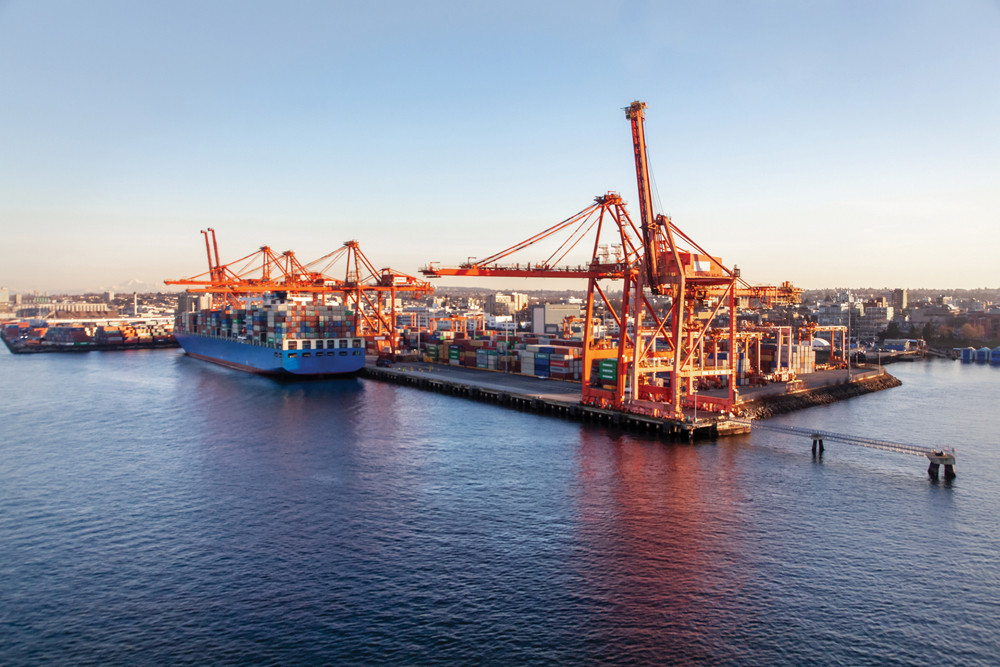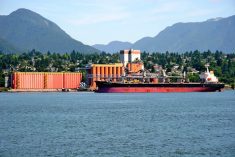Glacier FarmMedia – Goods in Canada are flowing more fluidly than during the pandemic, but the supply chain is still underperforming, according to a panel discussion at the Canadian Federation of Agriculture annual meeting in late February.
Arun Thangaraj, federal deputy minister of transport, said the value chain is still feeling pressure.
“The pinch points still exist. It is imperative that we tackle them now.”
Read Also

‘Millions will die’: Foodgrains Bank faces $2.7B federal funding threat
Foodgrains Bank warns $2.7B aid cut triggers a humanitarian crisis, risking global hunger relief and 40 per cent of its funding.
A national supply chain office, as recommended by a task force, has been established to help alleviate those pressures, he noted.
The co-chair of that task force, Jean Gattuso, said the office is a positive development, but too many things still aren’t fixed. Supply chains must be competitive, efficient and reliable, he said, and “not being reliable is probably the worst sin.”
Gattuso said Canada requires bullish objectives to ensure reliability. About 80 per cent of the world’s ocean freight is controlled by eight companies, he noted, and those will take their containers to American ports if they can’t count on Canada.
Government could enact regulations to enhance reliability, he added, and the supply chain office is looking at these issues.
Gattuso said the economic slowdown in 2022-23 resulted in better freight rates and more shipping capacity, and that could accelerate the transformation of the supply chain. But investment in critical infrastructure must rise.
“For every dollar managed by the eight largest pension funds in Canada, only 75 cents is invested outside of Canada. Of the 25 cents invested in Canada, two cents is invested in infrastructure,” he said.
That isn’t enough to foster the future a trading nation like Canada wants or needs.
Ron Lemaire, president of the Canadian Produce Marketing Association, argued that farmers pay the most when disruption occurs. He likened the supply chain to an orchestra, in which all the instruments have to be tuned to play together. If one is out of tune, everyone notices.
“I haven’t heard anyone say food is essential. We’re missing that key component in all of our policy and regulation in Canada,” he said.
Gattuso said the entire supply chain is full of bottlenecks and faces issues with capacity, distribution and infrastructure.
Marc Brazeau, chief executive officer of the Railway Association of Canada, noted grain cannot currently be loaded in the rain at the Port of Vancouver. Ports at Seattle and Portland have been able to do this for some time, he said.
“The Port of Vancouver has estimated that solving that problem would unlock about seven per cent in new capacity. That’s significant,” he said.
He added that governments could encourage that type of investment at terminals through something like accelerated depreciation. Maximizing port capacity through 24/7 operation would also help.
“If rail cars do not arrive at a country elevator on time because it’s raining in Vancouver, it’s tough to blame the railways if we don’t have some of those solutions in place,” he said.
Brazeau also said railways want the extended interswitching pilot project to be repealed so rail car movement occurs in Canada.
“Frankly, what we saw in 2014 to 2017 (when extended interswitching was in place) was more traffic moving south,” he said. “That means more jobs headed south because those containers and those goods are headed to ports.”
Gattuso noted that Americans are investing heavily in their ports so “we cannot look at ourselves and say we think we’re OK.”
Lemaire added that the U.S. requires timely data. Canada can’t sit on data and say the environment is competitive.
Panelists said Canada should look to examples in other countries for best practices to improve the supply chain overall.
– Karen Briere is a reporter with the Western Producer.















